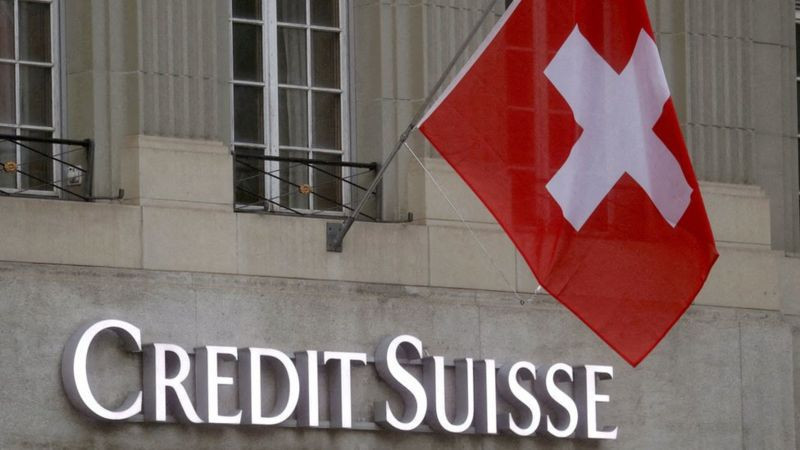The Credit Suisse group arranged to borrow up to 50 billion francs ($54 billion) from the Swiss National Bank (the central bank) and offered to buy back debt, in an attempt to reverse the downward trend in market confidence in the Swiss bank's stock.
The troubled bank will borrow via the liquidity facility mechanism and submit a tender offer to buy back up to 3 billion francs of debt denominated in dollars and euros, according to a statement.
Unprecedented by a major Swiss bank since the 2008 financial crisis, these moves are the largest yet to shore up Credit Suisse's balance sheet.
Credit Suisse shares fell as much as 31% on Wednesday in Zurich trading, and its bonds fell to levels indicating deep financial distress, as doubts persisted about the scandal-plagued bank, in conjunction with a global sell-off in bank shares.
Debt buy back
Credit Suisse has announced its second debt buyback in the last six months, as it looks to restore investor confidence. The bank had offered to buy back about $3 billion of its debt in October last year, announcing at the time that it wanted to take advantage of market conditions to buy back debt at attractive rates.
The latest offering includes 10 senior debt securities of up to $2.5 billion, as well as 4 major euro-denominated debt securities of up to €500 million.
Switzerland's second largest bank, which traces its roots back to 1856, has been rocked over the past several years by a series of problems, scandals, leadership reforms and legal issues. The bank's loss of 7.3 billion francs last year wiped out the profits of the previous decade, and the bank's second strategic transformation plan, during its many-year career, has so far failed to attract investors or stop the migration of its clients to other financial institutions.
Management assurances
On Tuesday, CEO Ulrich Korner asked for patience, stressing that the financial position of Credit Suisse is sound, referring to the liquidity coverage ratio of the bank, which is able to deal with a period of more than a month of outflows in the event of a period of stress.
Chairman Axel Lehmann had stated, at a conference (in Riyadh) on Wednesday, that government assistance is not up for discussion, and that the Swiss bank's efforts to return to profitability cannot be compared to the severe liquidity crisis hitting smaller banks in the United States.
It was reported earlier that the government, the central bank and Finma are in contact to discuss ways to stabilize Credit Suisse. People familiar with the matter revealed that the ideas that were put forward - other than government support - included separating the Swiss unit of the bank and linking it organizationally for the long term with the largest Swiss competitor, UBS Group, noting that it is not clear that any of these steps, if taken. approved, it will actually be implemented.







































